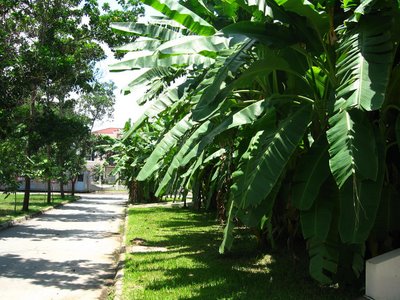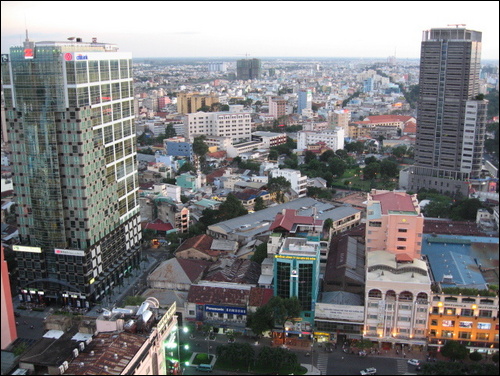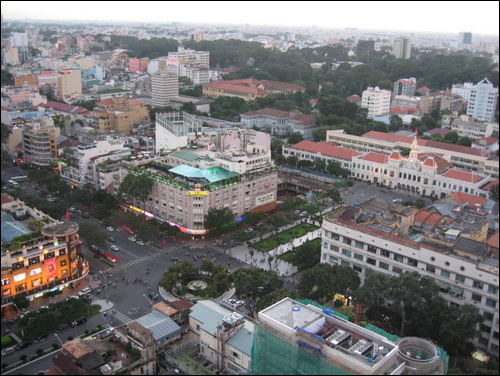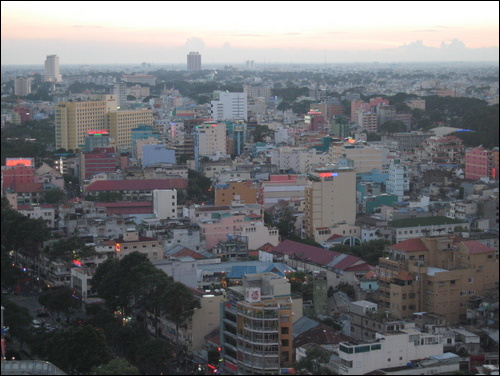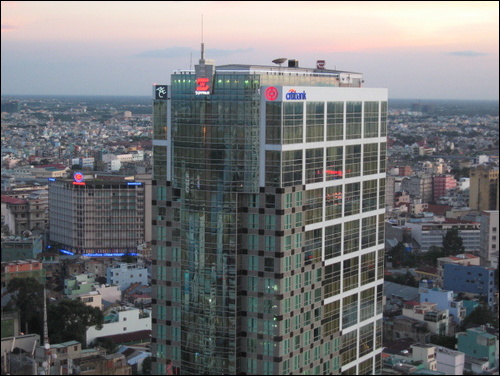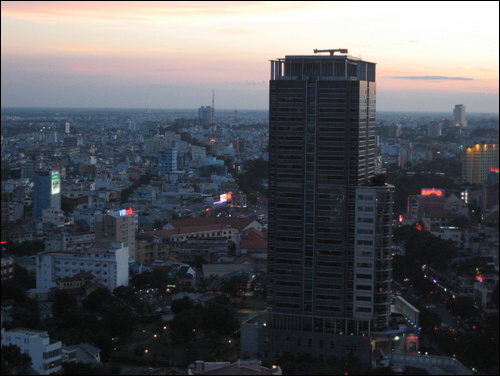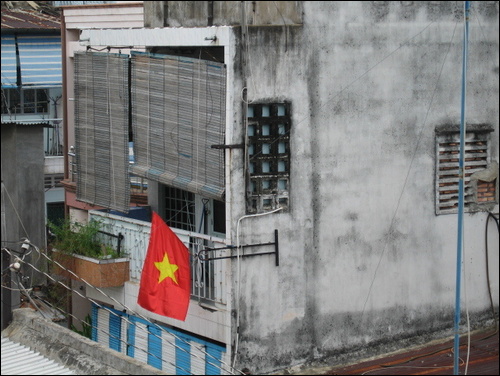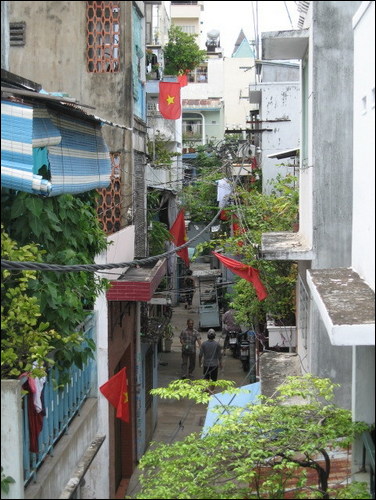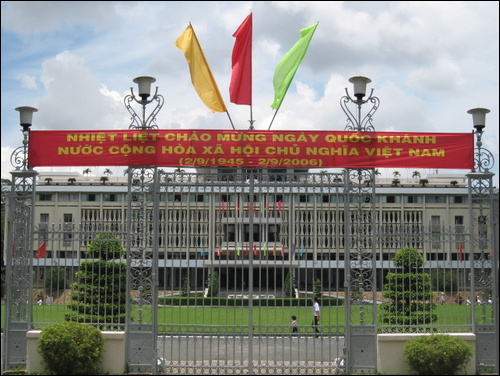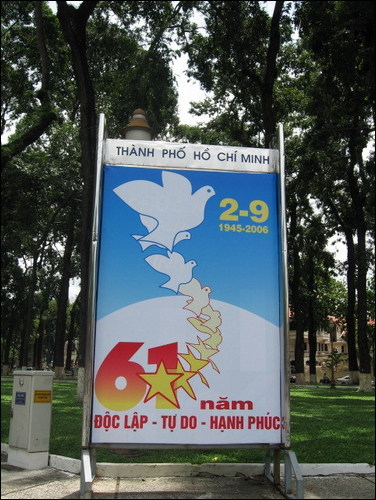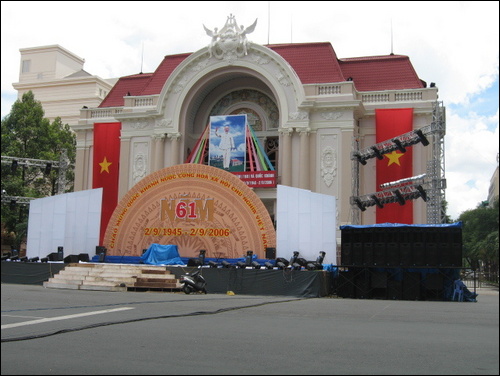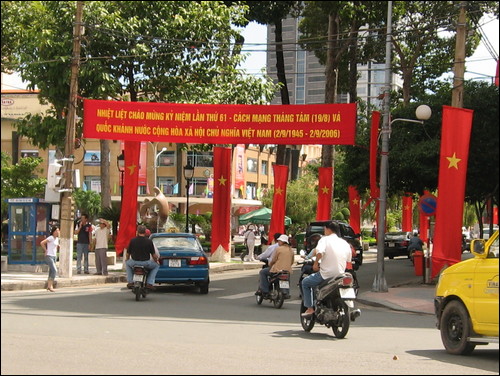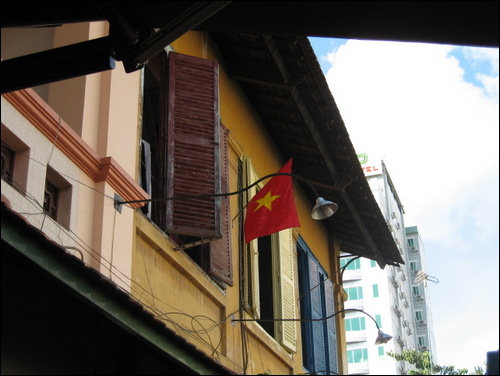In light of recent discussions on the way people write about Vietnam, I'd like to point out how far the negativity can go. This disucssion is on the expat discussion board 'Saigon ESL', mainly for teachers in the city.
Read it. Unfortunatly, there are negative aspects of living in Vietnam, and this illustrates them. They are things which haven't really affected my life here. I've never been in an accident, I've never been pickpocketed or robbed or targeted in any way. Actually, scrub that, it happened once when a taxi driver tried to confuse me by swapping notes around and pocketing a 100,000, then claiming I had still to pay for the fare. Only the once then. This quote scares me :
I tried to contact my embassy regarding what avenues expats have regarding crime/theft and the answer I received was "Here you are on your own. Try to pay off the police to help you if it is an emergency, but other that that good luck".You know why it scares me? Because I know it's true. Reading things like this make me realise how I am really walking a tightrope. The people in that discussion are bitter and negative because these things have personally affected them. They haven't touched me personally so I don't have such a negative attitude, but it's important to remember how easily it could be to end up feeling so angry, alone and ostracized, especially considering my experience in England where the police actually help you. My first experience was when my fiancee, to my horror, became victim to a number of burglaries. She told me she knew it was one of her next door neighbours. I told her matter-of-factly "Well call the police then!" but she told me that she would end up paying more to get anything done than had actually been taken from the house. The solution: buy a better door. I suppose my point here is that many foreginers who have an experience like this simply cannot accept such a conflict with their moral belief system and end up living in their own contrived world. Trust me, my girlfriend is as frustrated, fed up and disappointed with the way the governement and the police operate here, and she tells me it's a view shared by many. The Vietnamese know they 'got nothing coming' from the police and to an extent the village community (very much alive in the city) polices itself.
My counter argument is simple, and provided by many people to combat those constantly spreading a negative image of Vietnam - all the crime and theft is relatively petty. Bag and phone snatching, pick pocketing, house burglaries etc. Well, I know where I'd rather be, even if I'm a bigger target for crime in Vietnam, I'm sure I'm in more danger in my own society which truely is one of violence and aggression, where city centers are basically a no-go zone on Friday and Saturday nights because of drunken yob behaviour, where gangs and racial tension are running inner cities and council estates. I'd rather be here where I feel safe late at night on the streets.
In HCMC I marvel at the foreign exchange places where they keep thousands of dollars in a wooden drawer under the counter. Where the banks are policed by one or two unarmed security gaurds and they have huge bricks of money behind the counters, no glass windows, no grills, nothing protecting the staff there. Why? There's obviously no need for it. Can you imagine something similar in London or New York? I didn't think so. In England, the reality is that even taxi drivers are encased in perspex to stop people attacking them. It's sad.
Onto the discussion about the roads, the guy says the following:
The complete disregard for human life is appalling on the roads and the average Vietnamese has a disgusting "life is cheap" attitude that cannot be ignored when being on the road. This is a horrible statement and the perfect example of a huge huge misunderstanding by an 'expert' who should really be thinking a lot more about what he writes. My opinion is that off the cuff remarks like this are borne out of frustration and anger. Anger that so many people are needlessly killed on the roads simply fuels the ethnocentrism in this statement. Maybe he saw something; it is not to be underestimated the effect that witnessing a bad accident can have on someone, you could end up seeing something similar to that you might see in a war, we're not talking about grazed knees here. I've met people who have been here for a few days and seen people killed. I have never witnessed anything that bad, but I have seen a couple of things where afterwards I barely had the willpower to continue driving home; I did continue, but very slowly, hogging the kerbside.
Here's a link to an old report on the traffic situation in Vietnam.
What I will say though is that both the report and the previous link I gave are ethnocentric. There's no such thing as a good pass or an improper pass in Vietnam, there are no driving standards or laws which provide the standards in the first place. There is no driving test to pass. Yes motorbikes are overloaded with people and goods, but what are you supposed to do? Take the kids to school one by one? Make 3 trips to supply your store on the other side of town, or only one? As even the biggest stores don't have delivery trucks everything is delivered by bike - thats including huge TV's, fridges, washing machines and anything else you can think of, and they are often very badly balanced and being stabilised by one hand of the driver. The worst habits people have is talking on their mobile phones whilst driving and not looking when they enter a stream of traffic. The Vietnamese are not bad drivers, they are driving the only way they know how. I think it'd be hard work to change the rules of the road here, but we could start with simple things. Here are some of my ideas to help road safety in Vietnam:
1) Start with advertising on TV and billboards. Encourage people not to run red lights, to pull over to answer their phones and to prepare in advance for their right or left turns. It should be done in an educational way, and many reasonably minded people will recognise the danger of their activites.
2) We have advertising campaigns in the west about drink driving that are really brutal. Would a similar kind of thing hit home in Vietnam?
3) Please, please, lets install some footbridges at junctions and major roads. I see people edging their way across 6 lane highways inbetween honking 40 footers.
4) In regard to number 3, I should remember that even the most basic projects can't occur until money is channelled positivly. I remember my feelings of hopelessness at reading
this BBC article. The one thing Vietnam really needs is a better infrastructure, and here we are reading about how it's the most corrupt department going. Until this issue is resolved throughout all levels of government, new roads will continue to fall apart after a few weeks, old roads will continue to be badly maintained and the traffic on the roads isn't helped at all.
There are two sides to every argument. Here I’m trying to balance a little of the negative press Vietnam often receives about petty crime and its road safety record. How did I do?

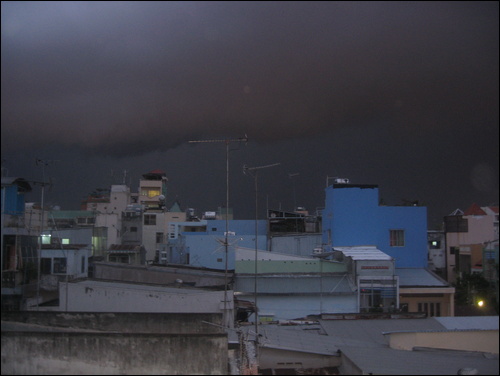
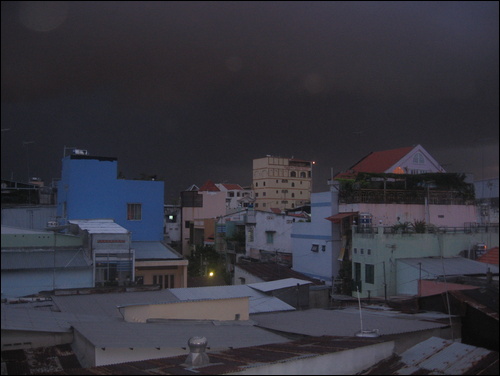
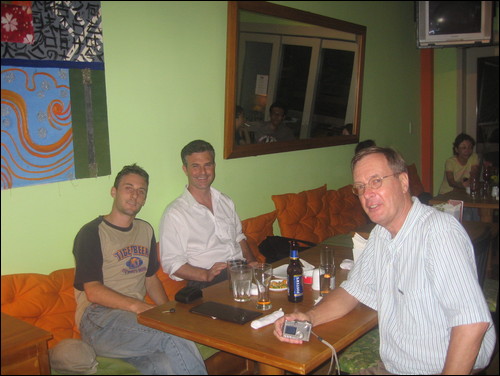
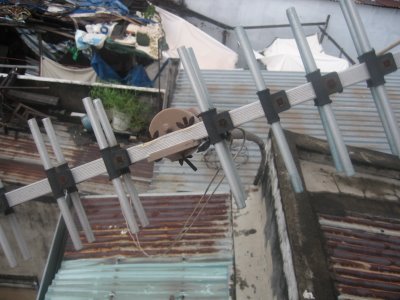
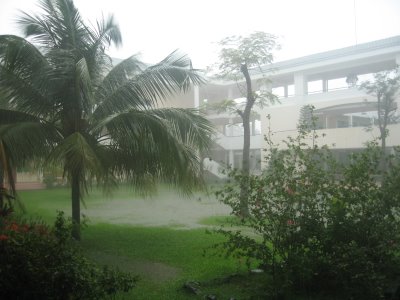
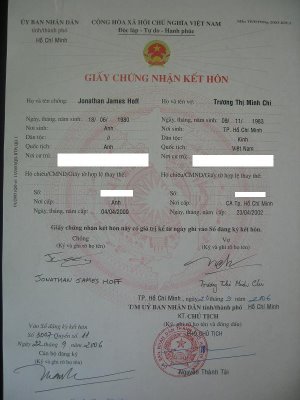

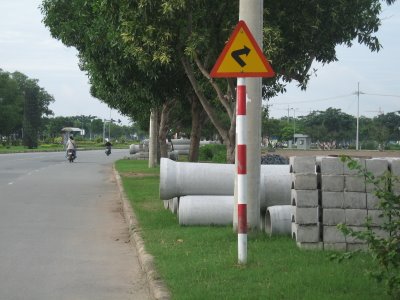
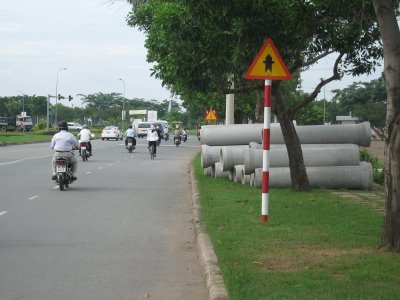 Ok ok, this is the last one, I promise. There are also some traffic lights. Sorry.
Ok ok, this is the last one, I promise. There are also some traffic lights. Sorry. 







